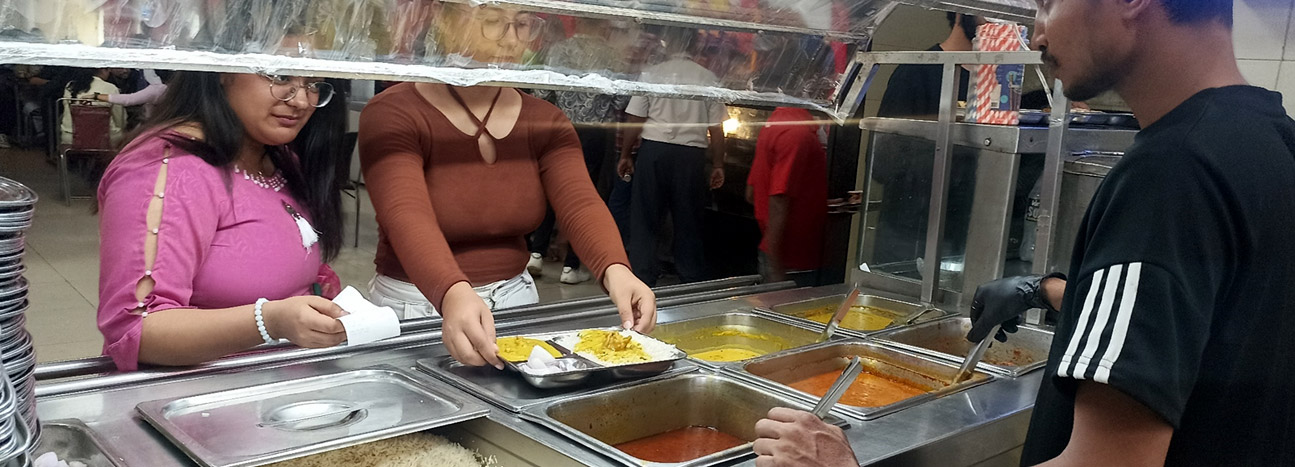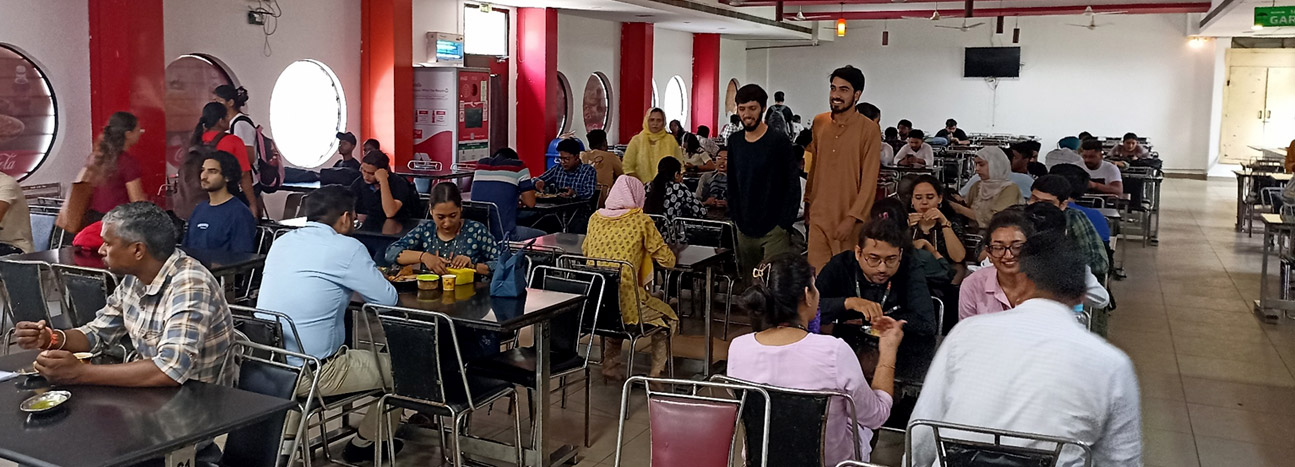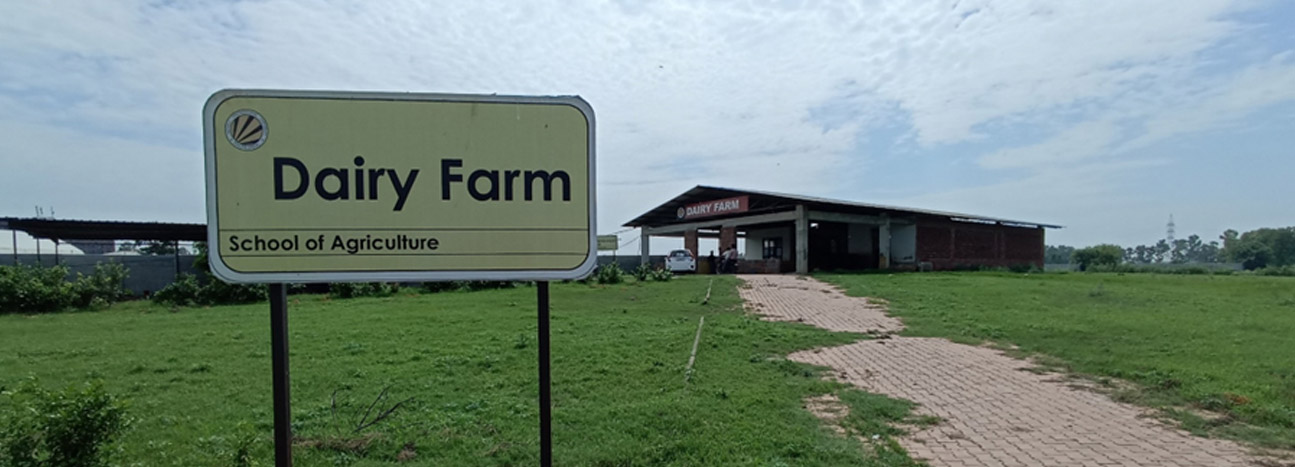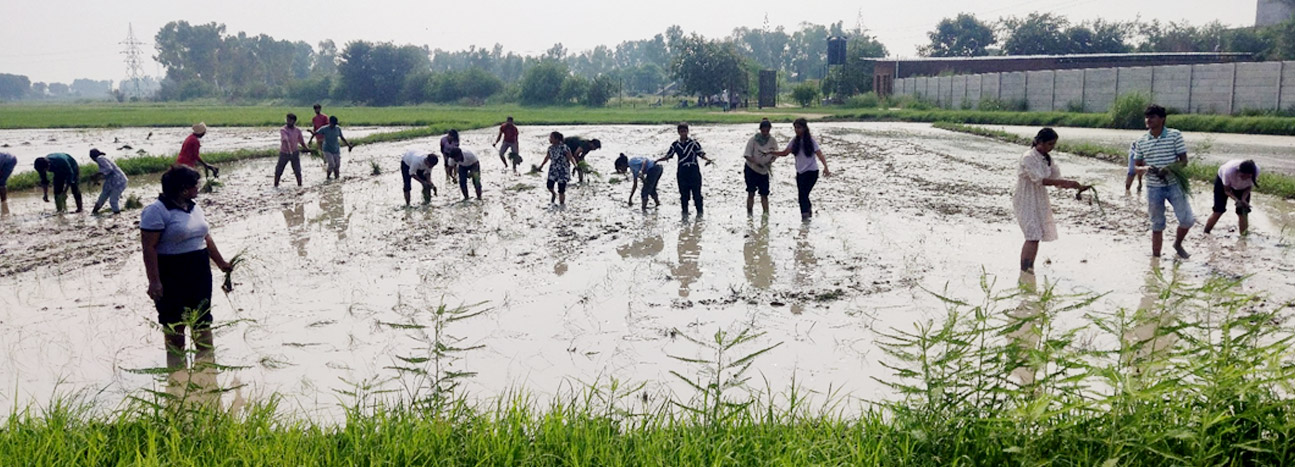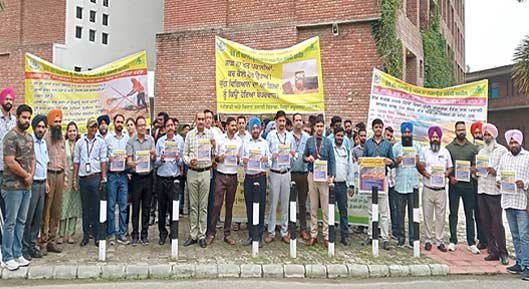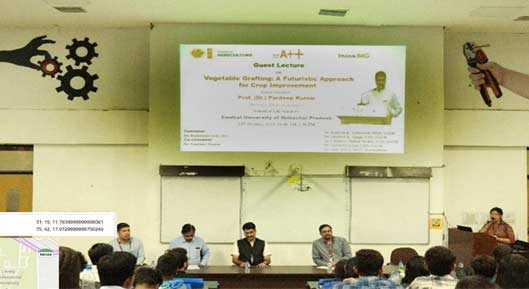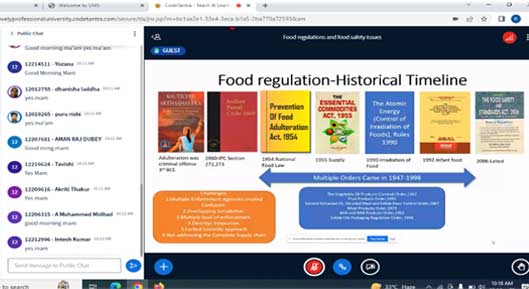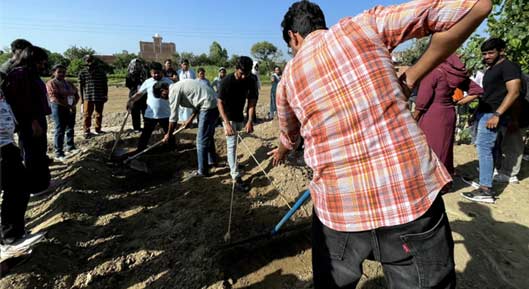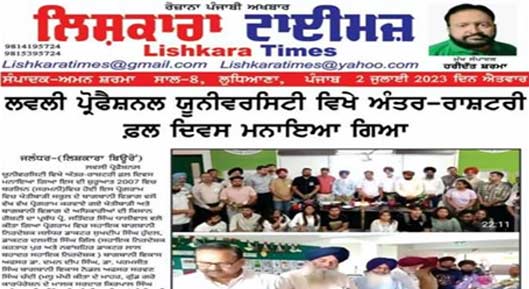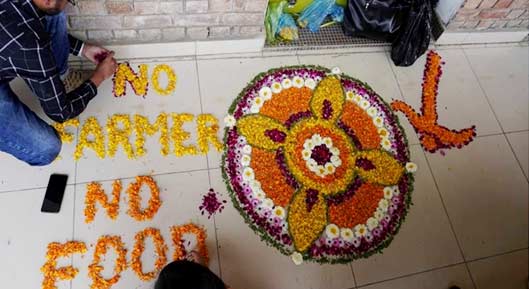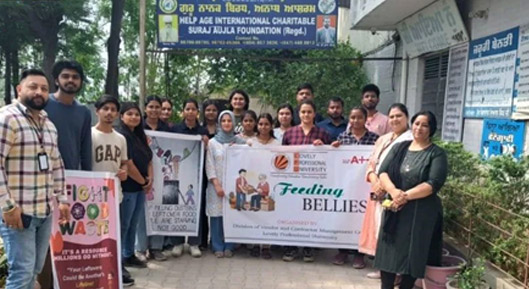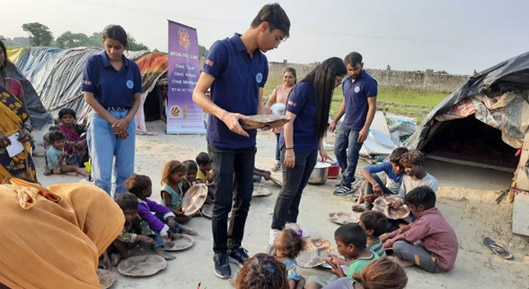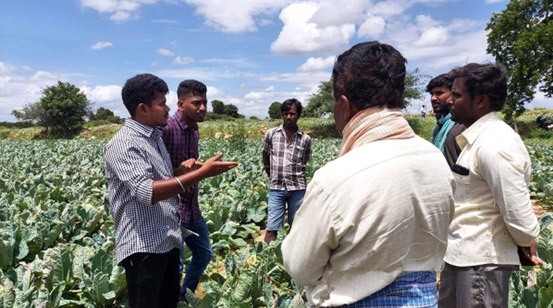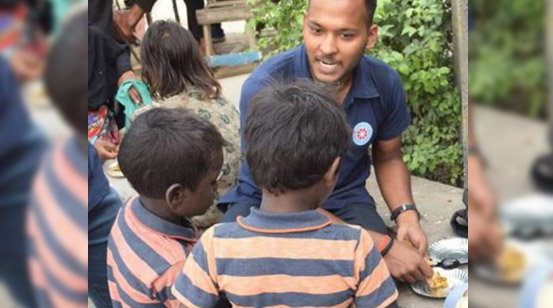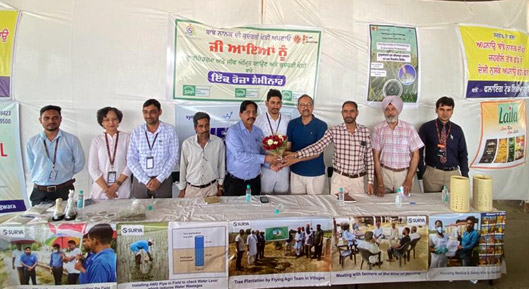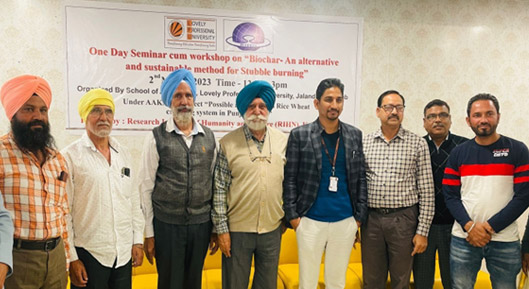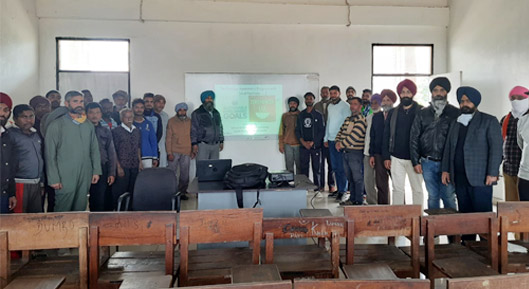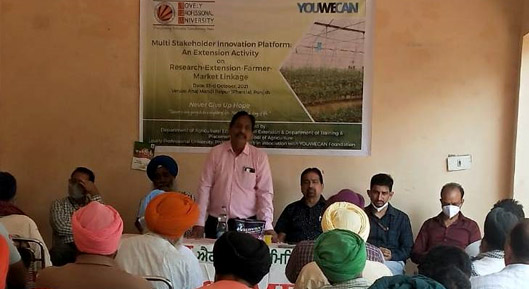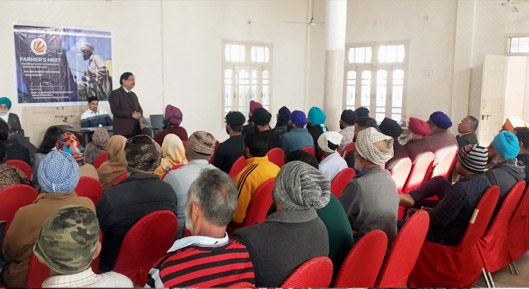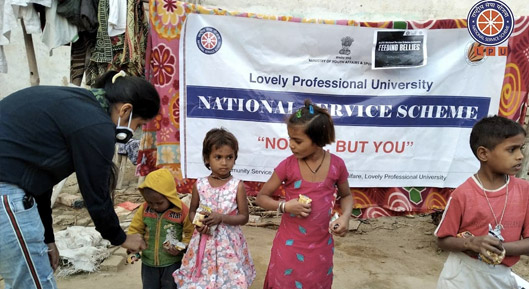Addressing the global hunger crisis requires a comprehensive strategy that encompasses multiple facets, including enhancing agricultural productivity, expanding social safety nets, promoting sustainable farming practices, and empowering marginalized communities. At Lovely Professional University, Campus dedicated to contributing to this vital mission by funding ground-breaking agricultural research, coordinating impactful awareness campaigns, and implementing effective food security and nutrition programs. While nature has the potential to provide food for all, the pressures of a rising global population and changing dietary habits have significantly burdened our environment, necessitating an increase in food production to secure nutritional well-being for everyone. According to the recent Global Hunger Index 2024 report, India ranks 105th out of 127 countries, reflecting an improvement from its 2023 position of 111th out of 125 countries.
A recent United Nations report estimates that in 2023, approximately 733 million people experienced hunger—around one in every eleven individuals worldwide. The trends are alarming: the percentage of people facing hunger continues to rise in Africa (20.4 percent), remains stable in Asia (8.1 percent)—a significant concern as this region is home to over half of the world’s hungry—and shows a decline in Latin America (6.2 percent). Between 2022 and 2023, hunger surged in Western Asia, the Caribbean, and most African subregions. Despite Asia housing the largest number of undernourished individuals, Africa exhibits the highest prevalence of hunger relative to its population. In response to this escalating crisis, both government and non-government organizations are diligently pursuing effective solutions. LPU is at the forefront of this effort, engaging in innovative agricultural research aimed at eradicating hunger, achieving food security, enhancing nutrition, and promoting sustainable agricultural practices. Together, LPU strive to create a world where everyone has access to sufficient, safe, and nutritious food.
LPU’s Contribution Towards SDG 2
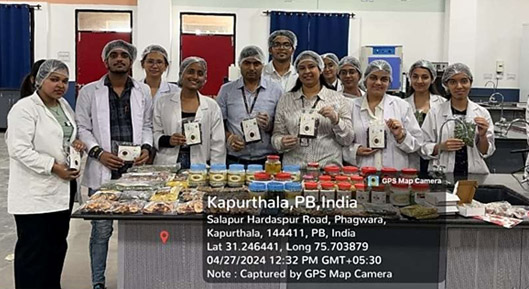
LPU has taken a comprehensive approach to address hunger-related challenges. By integrating sustainable agriculture, food security, and nutrition into various disciplines, LPU equips students with the knowledge and skills to contribute to solutions. Research initiatives focus on innovative agricultural techniques and food production methods, while community engagement programs promote sustainable practices and improve access to nutritious food. Through partnerships and collaborations with government agencies, NGOs, and international organizations, LPU contributes to larger-scale efforts and develops innovative solutions. Additionally, the university's campus initiatives demonstrate sustainable practices, inspiring students and the wider community to adopt similar approaches.
A Sustainable Vision to End Hunger for Global Food Security and Nutrition
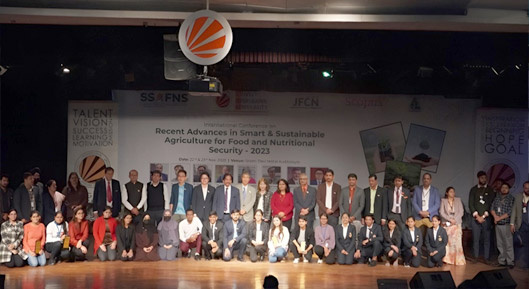
Academic Initiatives

Lovely Professional University has been at the forefront of promoting sustainable
development goals, particularly in the agricultural and food sectors. Their efforts
include planning, information dissemination, and high-yielding seed production in the
Department of Agricultural Sciences. They offer courses in Organic Farming (AGR410) and
Production of Quality Planting Material of Forest Species (HRT417), emphasizing hygienic
crop production to meet nutritional needs. The university is also dedicated to
minimizing food waste, with specific initiatives aimed at reducing wastage in the
hostels. Furthermore, they organize conferences, workshops, seminars, and training
programs for various stakeholders. Notable events include a seminar on Agriculture and
Biodiversity, a webinar on Patents in Agriculture, and an online webinar on the source
of food. These activities aim to raise awareness among students and stakeholders about
sustainable development goals, working towards a future without hunger, poverty, and
ensuring education for all. In addition to these initiatives, the faculty of Lovely
Professional University actively contributes through research publications and patents.
They have published more than 180 research papers and obtained 23 patents related to the
goal of Zero Hunger.
In addition, there is Experience Learning Programmes (ELP) where in farmers get exposure
on farming techniques. ELP like Water and Fertigation Management in Microirrigation,
Hydroponics Systems for Growing Plants etc.
Our Goals in Action: Eliminating Hunger on Campus
Furthermore, LPU actively engages in agricultural research aimed at enhancing farm production, fostering growth, and improving the efficiency of the food industry. Through these efforts, Campus strive to contribute not only to the well-being of our campus community but also to the broader goal of ending hunger globally.
LPU's diverse food options addressed hunger under SDG 2, offering a variety of affordable, nutritious meals across campus. From traditional Indian meals to international cuisine and healthy choices like fruits and South Indian dishes, LPU ensured that all students and staff could find meals to suit their tastes and dietary needs.
Framework and Guidelines to Effectively Reduce Food Wastage

Lovely Professional University (LPU) has established a comprehensive framework within the
institution. The key components of this framework include:
1. Food Requirement Calculation: LPU has implemented a systematic process to calculate
food requirements based on the daily needs of individuals. Students subscribe to food
services according to their preferences before joining the university.
2. Procurement and Hygiene Standards: The university ensures that food materials are
sourced from trusted suppliers known for adhering to good hygienic practices, which
helps in providing pesticide-free, high-quality food.
3. Student Awareness: LPU actively promotes awareness among students about responsible
food consumption. Signage is displayed at food serving areas to remind students to
self-serve according to their appetite, reducing plate waste.
4. Waste Tracking and utilization of food waste: To monitor food waste, 200-liter
capacity bins are strategically placed. Leftover food is collected in these bins and
repurposed to feed animals in nearby Piggery and Cowsheds.
5. Surplus Food Preservation: Any surplus raw and processed food is preserved in
freezers to prevent wastage and ensure it can be used efficiently in the future.
6. Internal Inspection: LPU has designated a competent internal agency responsible for
conducting regular inspections to ensure that the food waste reduction guidelines are
properly executed.
This framework and set of guidelines reflect LPU's commitment to responsible food
management, reducing food waste, and contributing to sustainable development goals. It
not only benefits the university but also sets an example for others to follow in
promoting sustainable and responsible food practices.
Campus/Extension Activities
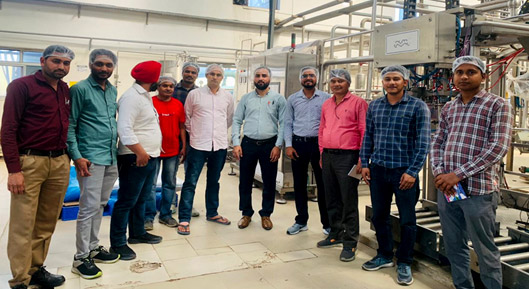
Future Plans
LPU’s focuses on Zero Hunger and developing a timeline and measurable targets which will
help ending hunger and promoting food security.
1. Develop educational programs and awareness campaigns for students and the local
community to understand the importance of zero hunger and sustainable food systems.
2. Establish partnerships with agricultural research institutions and promote research
on sustainable farming practices, food security, and nutrition.
3. Involve students and faculty in community projects focused on ending hunger and
providing food, especially among communities in poor situations .
4. Promote sustainable agricultural practices among students and local farmers to double
agricultural productivity while conserving the environment.
5.Increase access to nutritious food for vulnerable populations. This includes providing
adolescent girls, pregnant and lactating women, and older persons with access to
affordable and nutritious food, as well as nutrition education and counseling.
6. Create and maintain seed banks and participate in biodiversity conservation efforts
at the regional level to protect genetic resources.
7. Invest in technology development and innovation for improving agricultural
productivity and reducing post-harvest losses.
8. Offer skill development programs to equip students and the local farmers with the
necessary skills for efficient farming and food processing.
9. Provide financial services and support for local farmers, especially those engaged in
small-scale agriculture.
10.Work with local authorities to ensure the proper functioning of food commodity
markets, reducing price volatility and ensuring fair access to food.
11.Implement a system for tracking and evaluating progress towards zero hunger, with
measurable targets and timelines.
12.Implement green initiatives to improve soil quality and productivity, as well as to
address climate change and ecological concerns.
13. Actively engage with policymakers and advocate for policies that support food
security and zero hunger at local, regional, and national levels.
By incorporating these points into a future plan, LPU can play a significant role in
ending hunger and promoting sustainable food systems in the community and beyond.
Conclusion
In conclusion, Lovely Professional University (LPU) is actively intensifying its efforts to combat food shortages and ensure the supply of food to the needy and underserved populations in the surrounding areas. Moreover, the university is making significant strides in the fight against food wastage by promoting awareness campaigns among its students and staff, both within and outside the campus. The dedication of students and staff of LPU who are at the forefront of this battle working collaboratively with government initiatives that’s play a vital role in addressing these issues, it's taking on the responsibility of eliminating hunger and contributing to the achievement of the Sustainable Development Goal of Zero Hunger. LPU proactive involvement in community engagement, research, education, and sustainable agriculture practices underscores their commitment to creating a world where no one goes hungry. With these collective efforts, LPU is making a real difference in the quest for a hunger-free future.



